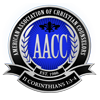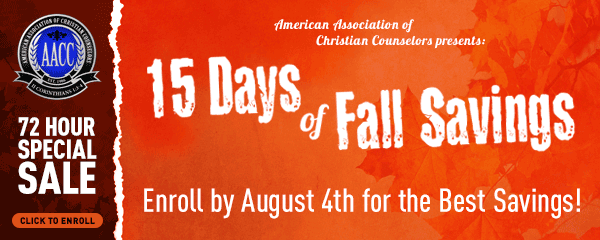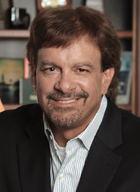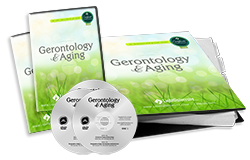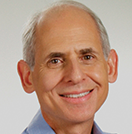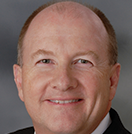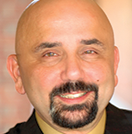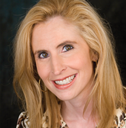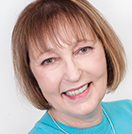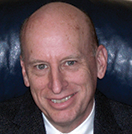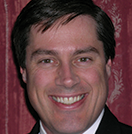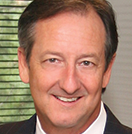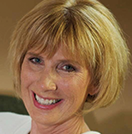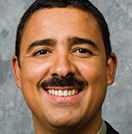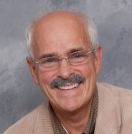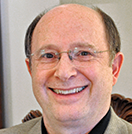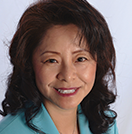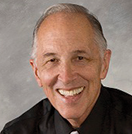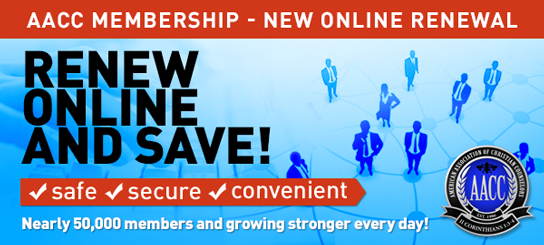|
Gerontology and Aging 101
Introduction and Core Issues
GERO 101: Introduction to Gerontology and Aging
Kathie Erwin, Ed.D. and Dwight Bain, M.A.
Gerontology and aging is a study of our future. As the aging population increases in the United States and worldwide, there is a growing need for counselors, coaches and caregivers with training in aging issues. This overview of aging identifies the significant issues and needs of a new generation of elders.
GERO 102: Demographics of Aging: Life Expectancy and Social Issues
Rick Caracciolo, Ph.D. with Jennifer Cisney Ellers, M.A.
The population is increasingly growing into a society that encompasses a large amount of elders. The aging population impacts society greatly. Family members, friends, and churches are just some of the areas that are affected by the aging population. Adaptations need to be made to accommodate this aging population because of the mental, physical, emotional, and social impairments that are common among the elderly. By preparing to end life well and making life adjustments as necessary, the aging person’s life can be more enjoyable.
GERO 103: Multicultural Issues of Aging
Elias Moitinho, Ph.D.; Melvin Pride, Ph.D.; Gemma Sohn, MSW; and
Eric Scalise, Ph.D.
The unique characteristics of different cultures affect the ways in which the elderly are cared for. The roles of family members and expectations for caregiving differ among cultures, impacting clients and the helping process. This session discusses beliefs and values for Hispanic, Asian, and African-American cultures.
GERO 104: Quality of Life and Health Assessments
Dwight Bain, M.A.
Quality of life decisions must be made when an elderly individual experiences stroke, heart disease, terminal illness, Alzheimer’s disease, and many other causes of impairment. In such situations, the role of a coach or counselor is to come alongside caregivers as they attend to the needs of their elderly family member. This session explains the CARE model, which helps clients make quality of life decisions.
GERO 105: Acute and Chronic Illness in Aging
Tim Jennings, M.D.
The impact of aging can be slowed and illnesses reduced based on the decisions that are made over a lifetime. Through healthy diet, exercise, avoiding toxic substances, and maintaining a healthy spirituality, aging decelerates. This session provides an action plan to slow the aging process and minimize the risk of illness.
GERO 106: The Aging Brain and Related Memory Loss
Daniel Amen, M.D. with Jennifer Cisney Ellers, M.A.
Alzheimer’s disease is the number one preventable cause of death in the United States. Many Americans live unhealthy lifestyles, thereby increasing the chances and severity of this disease later in life. This session teaches how lifestyle choices can help the aging brain and reduce symptoms of Alzheimer’s.
GERO 107: Behavior Challenges and Personality Changes with Alzheimer's and Dementia
Kathie Erwin, Ph.D.
Unpredictable behaviors are part of Alzheimer’s disease and other dementias, causing great concern for family members. Often, caregivers’ responses to these behaviors are inappropriate. This session discusses behavioral and personality changes characteristic of Alzheimer’s and the ways in which caregivers can develop positive, compassionate responses to such challenges.
GERO 108: Short and Long-term Disability in Aging
Tim Jennings, M.D.
Unhealthy beliefs, chronic stress, sedentary lifestyles, and dysfunctional relationships are just a few of the primary causes of accelerated aging. Maintaining a healthy lifestyle is crucial for minimizing the impact of the normal aging process. This session teaches how to formulate an action plan to reduce the risk of disability and maximize functioning in later life.
GERO 109: Assisted Living and Long-term Care
Rick Caracciolo, Ph.D. with Jennifer Cisney Ellers, M.A.
There are over 50,000 assisted living options in the United States. However, many misconceptions about these services exist, causing confusion and less informed caregiving when it comes to decision making. This session explains long-term care options and provides guidelines for choosing a nursing home or assisted living facility.
GERO 110: Financial Issues of Aging: Estate Planning Basics
Stephen D. Lentz, Esq., J.D.
The American elderly are faced with numerous issues related to healthcare concerns, personal asset preservation, Medicaid and Medicare eligibility, retirement, and competency. The importance of planning, as opposed to reacting, is the key to protecting one’s assets. This session discusses the many options available for critical estate planning needs.
GERO 111: Ethical Issues and Elder Abuse
Eric Scalise, Ph.D.
There are millions of reported cases of elder abuse every year. Psychological, social, and deteriorating mental and physical capacity are factors that make elders more vulnerable to abusive situations. This session provides insight into the forms and prevalence of elder abuse, and teaches how to take appropriate action.
GERO 112: Faith and Spirituality in Aging
Michael Parker, D.S.W.
People are now living longer than ever imagined. Because of this, the Church has a pivotal role in rebuilding and preserving communities and lives. This session describes how spirituality has recently been incorporated into models of successful aging and how, through the inclusion of faith, counselors and coaches may help the elderly find their sense of purpose.
Gerontology and Aging 201
Grief, Loss and End of Life Issues
GERO 201: Multiple Losses in Aging
Kathie Erwin, Ed.D.
In the latter years of life, older adults experience a series of losses and role-exits. These may be by choice or circumstance and often affect every aspect of life. This session explains common role-exits older adults frequently face and the impact these can have on a person’s sense of purpose.
GERO 202: Loss of a Spouse
H. Norman Wright, M.A.
The loss of a spouse often leaves a person feeling alone, with the concept of “until death do us part” suddenly becoming reality. This session discusses grief and the many emotions associated with losing a spouse, as well as the ways in which caregivers can minister to clients during this period of transition.
GERO 203: Elderly Suicide and Homicide
Linda Mintle, Ph.D.
Suicide and homicide are significant and complex issues when treating the elderly population. Primary care physicians, community interventions, and senior peer counseling programs can be implemented to help minimize these tragic events. This session discusses prevention strategies, as well as warning signs for suicide and homicide.
GERO 204: Life Review and Aging
Michael Parker, D.S.W.
Life review enables individuals to recall the past and examine their lives, improving overall life satisfaction and wellbeing. The Christian community has a unique opportunity to capture the stories of elders, which is a late life antidepressant. This session emphasizes Erikson’s model of development and provides advice on how to document elders’ stories and experiences.
GERO 205: Financial Issues of Aging: Long-term Care
Stephen D. Lentz, Esq., J.D.
Long-term care considerations require advanced planning and allow individuals to maintain an optimum level of independence in later life. This session explains the various types of long-term care, the risks associated with specific options, and how the current Affordable Health Care Act affects elderly care.
GERO 206: Financial Issues of Aging: Medicare, Medigap and Medicaid
Stephen D. Lentz, Esq., J.D.
As people age, it is important to help them, as well as their family members, better understand the different types of available insurance programs for meeting the health related needs for elders. This session discusses the key components, coverage, and limitations of Medicare, Medigap, and Medicaid.
GERO 207: End-of-Life: Family Issues and Decision Making
Linda Mintle, Ph.D.
Throughout our lives, we typically anticipate and prepare for significant events and transitions. However, many neglect to plan ahead for the end of their lives. This session discusses the importance of making decisions in a timely manner and explains critical tasks families must address regarding end-of-life needs and planning.
GERO 208: Palliative Care and Dying
Jack Galle, D.Min.
Palliative care and hospice aim to relieve suffering and help a person live meaningfully and with dignity. Before addressing others’ needs to plan for the end of life, we must consider our own death and wishes. This session provides a framework for how palliative care treats physical, emotional, social, and spiritual pain associated with the end of life.
GERO 209: Grief, Loss and Family Bereavement
H. Norman Wright, M.A.
Everyone experiences grief and loss throughout life, especially the elderly. This session discusses eleven different kinds of loss, the dynamics of the grieving process, and how to effectively counsel and provide caregiving to a family or individual who has experienced significant loss.
GERO 210: Family Caregiving: Illness and Disability
Jennifer Cisney Ellers, M.A.
Eighty percent of long-term care in the United States is provided by family members. This caregiving process is one of the most stressful things a person can face, and often results in health problems, decreased social interaction, family conflict, and spiritual pain. This session provides practical tools for helping caregiver clients.
GERO 211: Family Caregiving and Resources in Alzheimer's and Dementia
Jennifer Cisney Ellers, M.A.
Family caregiver stress can be higher when working with Alzheimer’s patients due to the duration of the disease, erratic behavioral and personality changes, and the role-reversal of the parent-child relationship. This session describes the unique challenges caregivers face and teaches how counselors and coaches can provide support.
GERO 212: Caregiving, Compassion Fatique and Self-care
Eric Scalise, Ph.D.
Caregiving often results in burnout and stress, which can cause health problems, decreased intimacy in relationships, and compassion fatigue. This session explains the differences in burnout and stress, the neurobiology of stress, and challenges counselors and coaches to develop a personal stress prevention plan.
|
